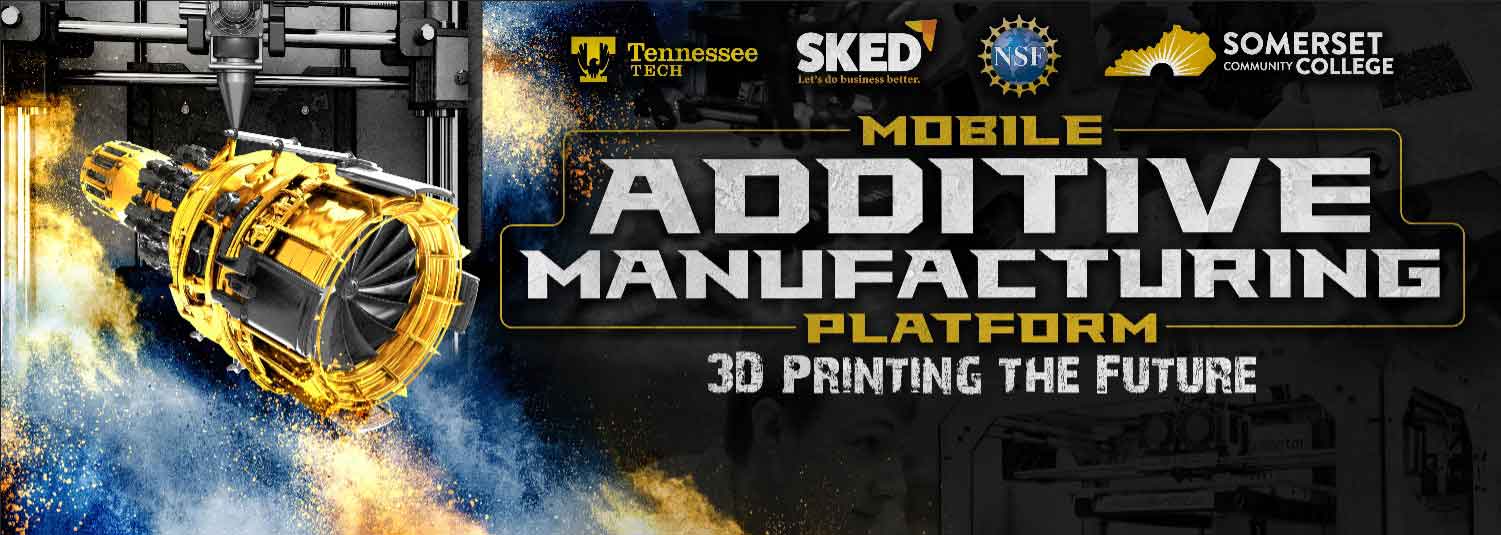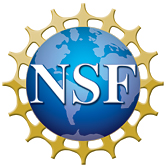
About & Acknowledgments

National Science Foundation Award # 1902437
Mobile Additive Manufacturing Platform for 21st Century STEM Workforce Enhancement
Notice: This grant project has ended.
Additive manufacturing (3D printing) has become an increasingly common manufacturing production method. As a result, industries in eastern Kentucky and Tennessee have begun to shift their production to additive manufacturing. However, this region has a shortage in the skilled technicians needed to meet the resulting workforce demands. Also, manufacturers and potential workers in rural and underserved areas in this region might benefit from increased awareness of the advantages that additive manufacturing can provide. In this project, Somerset Community College (Kentucky) and Tennessee Technological University will work together to help address these workforce and education needs. Specifically, this project aims to help educate a new generation of qualified employees for the region's manufacturing workforce. To achieve this goal, the project partners will update the curriculum for an existing certificate in additive manufacturing to include advanced concepts and design methods for 3D printing. A mobile equipment platform for additive manufacturing will also be developed. This mobile additive manufacturing platform will enable learning activities in additive manufacturing to be brought to high schools, community colleges, and workplaces across the region. Through these efforts, the project aims to help the regional population and companies to become more familiar with additive manufacturing, and to create a generalizable approach that can be adapted by other rural communities. The project will also provide pathways for more community college students and workers to obtain credentials in additive manufacturing.
The overarching goal of the project is to enhance workforce development opportunities in additive manufacturing for high school students, community college students, incumbent workers, and manufacturers in underserved regions of Kentucky and Tennessee. Two courses will be developed to include advancements in powder-based printer and metal printer applications. These courses will be integrated into the existing curriculum for the 3D Printing Technician-Level 1 certificate at the institutions. These courses will cover topics such as improved product topology, metal sintering production, advanced composite materials, and generative design concepts and techniques. Customized curriculum on these topics will also be developed and offered in workshops for high school students and incumbent workers. A mobile additive manufacturing platform will be designed to provide hands-on learning experiences using high-grade industrial materials and state-of-the-art 3D printing equipment. The use of this transportable equipment will enable students and incumbent workers across the region to directly interact with a full range of production techniques and capabilities. The project team will study the effectiveness of this mobile educational delivery method in achieving desired learning objectives and benchmark the results against traditional educational approaches. The project materials, best practices, and results will be shared on the project website, through Advanced Technological Education Centers, and at regional and national venues. This project is funded by the Advanced Technological Education program that focuses on the education of technicians for the advanced-technology fields that drive the nation's economy.
This award reflects NSF's statutory mission and has been deemed worthy of support through evaluation using the Foundation's intellectual merit and broader impacts review criteria.
https://www.nsf.gov/awardsearch/showAward?AWD_ID=1902437
Acknowledgments
 This material is based upon work supported by the National Science Foundation under
Grant No.1902437.
This material is based upon work supported by the National Science Foundation under
Grant No.1902437.
Any opinions, findings, and conclusions or recommendations expressed in this material are those of the author(s) and do not necessarily reflect the views of the National Science Foundation.
